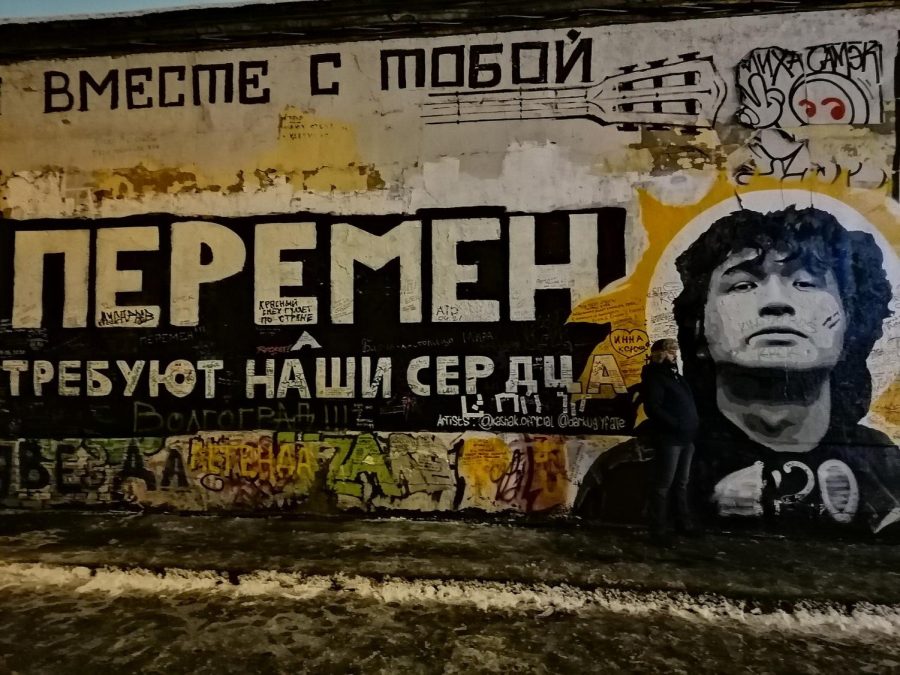Post-Punk from Petersberg
March 9, 2022
Istanbul was once Constantinople, and Petersberg was once Leningrad, where Kino formed way-back-when in 1982 under the name ‘Garin and the Hyperboloids,’–a reference to a novel by Russian novelist Aleksei Tolstoi–by Viktor Tsoi, Oleg Valinsky, and Aleksei Rybin (Valinsky would soon have to depart due to being drafted). One could imagine Viktor Tsoi, the band’s frontman and vocalist, memorialized alongside Kurt Cobain amongst a league of internationally-famed voices of their respective generations.
Their short-lived moniker would soon be dropped for ‘Kino.’ They’d release 45, their debut album, in 1982, though to a small audience and without much success. Acclaim would come with “Начальник Камчатки” or Chief of Kamchatka album published in 1984, then followed by “Это не любовь…” (This is Not Love…) in 1985, and their first official album release a year later “Ночь” (Night), released without the band’s knowledge but netting them over 2 million copies sold.
Gruppa Krovi, their most popular album, would be released alongside a movie in 1988, the height of perestroika. Most Westerners will notice that the album shares a title with their most famous song, which also featured in Grand Theft Auto IV and was covered by Metallica live in Moscow. Tsoi even recorded an English cover of his own song for an English-speaking fan that had written to him. Two more albums would be released and the band’s fame would flourish with each, with another notable song, “Хочу перемен” (I want changes!) releasing alongside them, which has since become a popular song of political dissidents in the former Eastern bloc.
Kino would come to a tragic end with Viktor Tsoi’s car crash during a short hiatus. A final album would be released in memory of Tsoi including songs that had already been recorded and were planned for release.
Tsoi’s death, much akin to Cobain’s, was mourned internationally. Kino still remains popular in Russia, just as Nirvana has within the United States. Their music, often brooding and introspective, continues to characterize the feelings of ordinary Russians and their depression both economically and culturally since the fall of the USSR.
Kino’s message, despite its impact on Russian culture, remains international. The youngest generations of the Anglosphere have begun to rediscover Tsoi and his message, with popularity slowly rising once more. Alienation has risen globally. More of the West’s youth has become conscious of the cold reality of neoliberalism and like Tsoi, they want change.












